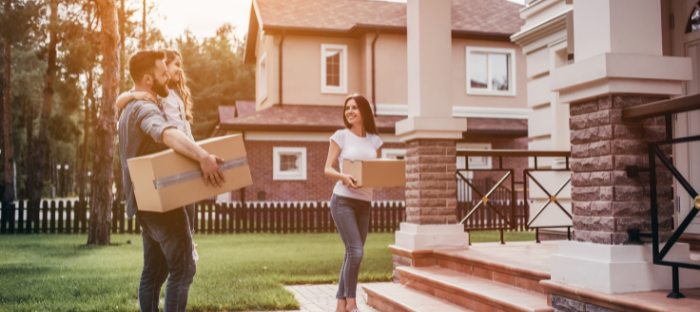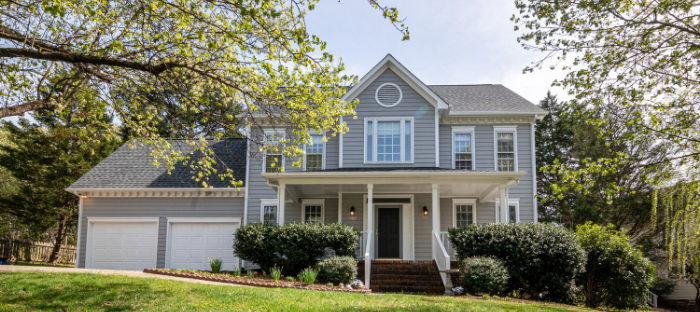The Risks of Buying a Fixer-Upper
The Risks of Buying a Fixer-Upper

What does it mean to buy a home as-is?
If you buy a house "as-is" you are usually getting the home at a lower price, but you could potentially end up repairing or doing work that would have been ordinarily completed by sellers. Buying a home as it is can require a considerable amount of work for the home to be move-in ready but it can be a great option for people who do not have great credit or want to raise the house's market value before putting it back on the market for a profit.
Why would someone buy a home as-is?
There are two major reasons that we mentioned above: lower upfront cost and the possibility of a good investment.
Why do fixer-uppers cost less?
The main reason why fixer-upper homes cost less is that they require repairs. This means that the buyer can negotiate a lower price with the seller because the seller knows that the new owner will have to put in some work to get the home up to par.
Home renovations can fetch a high price and the seller may not be willing or able to do them before selling. Unless the interested buyer waives their right to a home inspection, a home inspector will likely point out all of the issues with the property that could lead to increased costs for the new homeowner.
Another reason that fixer-upper homes cost less is that they are often in need of updated appliances, flooring, paint, and other cosmetic features. Not all fixer-uppers have deep issues that might fetch high renovation costs.
For any house, unexpected issues can make an estimated cost feel more like a suggestion than anything concrete but the risk is far greater with a fixer-upper home.
Who buys fixer-upper homes?
Though it might seem like a simple straightforward answer, there are a few people that will consider something other than a move-in-ready home.
It's all they can afford.
To buy a fixer-upper is to move large sums of money, in the form of a downpayment and mortgages for the most part, for a great amount of risk. The simple truth is that for a lot of people, a fixer-upper house is the best that they can afford.
Time constraints, financial stresses, and more mean that a fixer-upper is the right decision.
The potential of the location is too good to pass up.
Some buyers are not scared off by the renovation process and the discomfort is not an issue - but what they see in the property is what the house might look like in the future. These people may be able to afford something better in a different location but for one reason or another find that the benefits of the location supersede everything else.
For these homeowners, more money put toward a house that won't need a slew of contractors is not a problem and the home buying process will look different for them compared to people that have no other choice.
This category is further divided into three subgroups, those who will be living in the home and will sell it as soon as renovations are done, those that will stay after said renovations, and real estate investors.
The third category is a little rarer but some people make it a career to tackle project after project where they pour some money into fixer-upper properties to eventually turn a profit.
What are the risks?

Here are some of the common things that people need to look out for in a home, beyond aesthetic issues, that can quickly become a drain that makes a credit check sound like a good idea and closing costs sound like a dream.
Plumbing Issues
Are you home if you can't go to the bathroom in peace? Plumbing issues can be as simple as changing some water fixtures but can be as demanding as changing the whole network of pipes in the worst circumstances.
Modern plumbing pipes are designed to last a long time, usually upwards of 80 years but if you notice things like strange water colouration and low water pressure then it may be a good idea to get in touch with a plumber.
If you are planning to buy a fixer-upper house always ask if you can turn on the showers and taps to check the water pressure. No one wants to deal with a down payment if they can't use the shower properly.
Electrical wiring
Electricity is a basic human need in modern times, but it can also be dangerous. Bad electrical wiring can cost a lot more than a slight rise in utility bills.
This may not be immediately visible during a home inspection but the wiring that goes in the walls of a house can be worn down over time. This isn't necessarily a fact that only affects older houses. Faulty insulation or water leaks can damage electrical wires and cause major issues that can lead to fires starting within the walls of the new home.
Updating the electrical wiring can make a mortgage look like adding insult to the injury that is the cost of rewiring a house.
HVAC
HVAC stands for heating, ventilation, and air conditioning. It is a system that is used to control the temperature and air quality in a building. In a country where opening your windows in January would turn your living room into a walk-in freezer, a good HVAC system is essential.
When it comes to the air you breathe, a bad HVAC system can let in pollutants and outside debris which can make things dire if you or someone you live with has respiratory issues like asthma.
Everyone deserves adequate heat in the winter and cooling in the summer.
A proper HVAC system is not something to scoff at but in a fixer-upper house, there is a chance that the purchase price is low because of how hard it may be to renovate its ventilation or heating systems.
Roofing
A roof is usually not the first thing people think about when buying a house but it is the home's first line of defence against things like rain, snow, and storms.
A roof that has been damaged by neglect is almost always in this situation because no one wanted to replace it or maintain it. The repair done to a home's roof can pay off in more ways than one in the future.
An issue that starts small can become very expensive quickly if left alone, though once again it might be hard to find information on this unless you know what you are looking for.
Buying a fixer-upper often becomes a nightmare because of a roof that has not been updated regularly. All of the previous points about the HVAC system, plumbing and electrical wiring might as well not mean another if water seeping through the roof is causing damage between the walls that weakens all the other systems.
If you decide to look into a fixer-upper one of your priorities should be to check for issues with the roof. All the money you save from the lower purchase price might just get used up to deal with the roof.
Other risks
There are a few risks that are associated with buying a fixer-upper. The most obvious one is the fact that the property will likely need repairs and these repairs can be costly which we just expanded on. Unexpected issues can also arise during a renovation project, which can lead to even more expenses for the new homeowner, which is why you need to get to the source of a problem as soon as possible.
Another risk is that the home may not be worth as much as the new homeowner thought it would be once the renovations are complete. An appraisal considers many things like the style of the home no longer being popular or the neighbourhood changing in a way that makes the home less desirable.
Finally, there is always the risk that the renovation project will not go smoothly and that the new homeowner will end up spending more money than they will make up.
What are some protections for buyers?
Yes, a homebuyer has several options if they feel like they were taken advantage of when agreeing to purchase a fixer-upper as is. A qualified lawyer can help negotiate a better deal for the buyer or help them get their money back.
It all depends on the sale contract that was signed. Buying a fixer-upper doesn't mean that a buyer did so without conditions attached to the purchase. However, if the offer was clean, lacking conditions, and the offer waived the buyer's guaranteed protections then they may be left without recourse.
There is a whole section of real estate law that deals with what is designated as Material Latent Defects, which are flaws with the home that the seller intentionally hid and that could not be seen after a reasonable home inspection.
For example, if the new homeowner knew about the plumbing issues but not the dangerous foundation issues that were known and covered up by the seller then they may be able to sue. It's important to keep in mind some of the details that go into this specific situation but it's a good thing to remember. After all, a buyer will often have a mortgage and a lender that they have to pay back.
Real estate agents are required to disclose material latent defects if they are made aware of them but if the sale occurred without a real estate agent present for either party then it can make litigation more complicated in the future.
The bottom line.
Buying a fixer-upper home is always a challenge but it can pay off in a lot of ways. Real estate is generally a safe investment but before taking the plunge, a buyer needs to decide if they have the budget for the needed remodelling and the ability to wait for the investment to pay off.
View All Homes For Sale in Greater Vancouver >>>
About Search Home Listings
SearchHomeListings.ca has simplified the home buying and selling process by giving you superior tools with up-to-the-minute information including active homes for sale, sold homes, market reports, and a home valuation tool! We have a team of success managers on standby to support you with setting up your saved home search and agents ready to take you out on a tour. Tap into our industry experts from inspectors, to contractors to interior designers to provide you with the best prices and service possible. Everyone attached to our website has been rigorously vetted and is made up of caring, knowledgeable professionals that work tirelessly to help you to make your home buying experience as stress-free as possible. Contact us today to see how we can help!
Sites We Follow
Categories
Recent Posts










